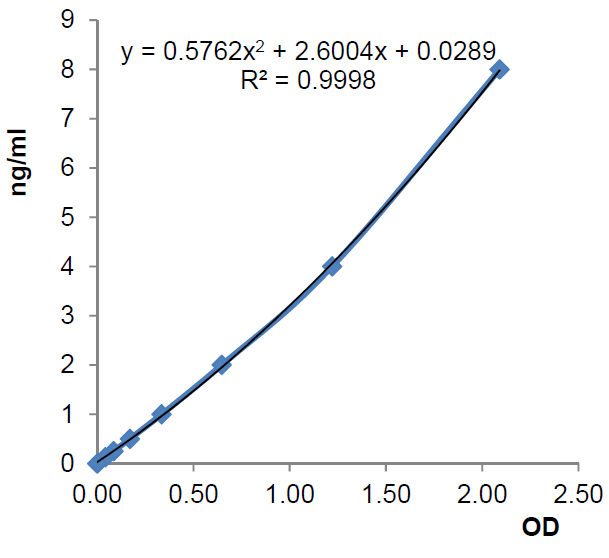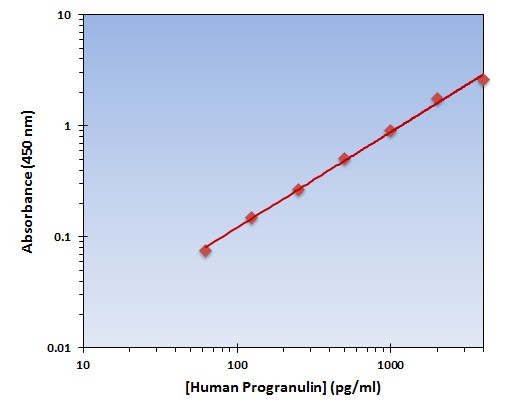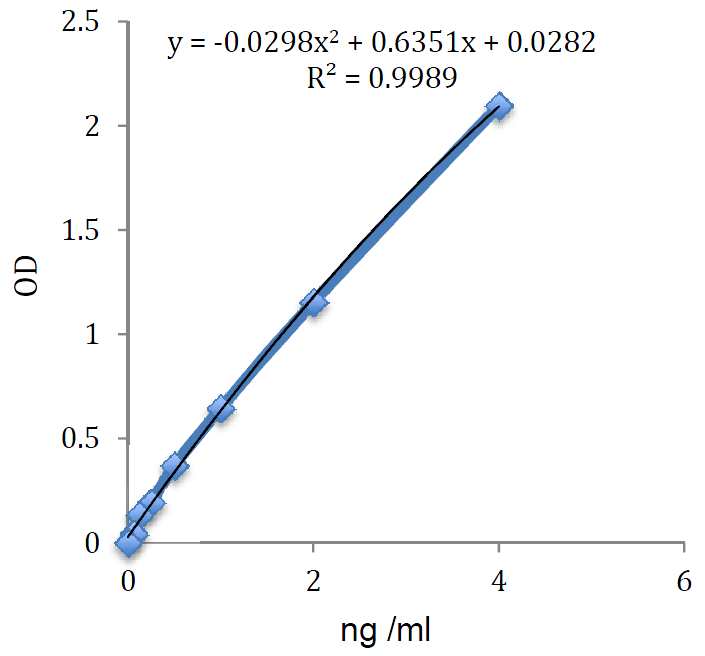
Standard Curve
Progranulin (mouse) ELISA Kit
AG-45A-0019YEK
ReactivityMouse
Product group Assays
Overview
- SupplierAdipoGen Life Sciences
- Product NameProgranulin (mouse) ELISA Kit
- Delivery Days Customer10
- ApplicationsELISA
- Assay Detection Range0.125 to 8ng/ml
- Assay Sensitivity60pg/ml
- CertificationResearch Use Only
- Scientific DescriptionELISA Assay. Detects mouse progranulin. Does not cross-react with human progranulin. Colorimetric assay. Sample Types: Cell Culture Supernatant, Serum. Range: 0.125 to 8ng/ml. Sensitivity: 60pg/ml. Progranulin (PGRN) is a widely expressed pluripotent growth factor which plays a role in processes such as development, wound repair and inflammation by activating signaling cascades that control cell cycle progression and cell motility. Its function in the central nervous system is of interest, as mutations in the PGRN gene were found in cases of frontotemporal degeneration (FTLD). In addition, PGRN has also been linked to tumorigenesis. New cutting-edge publications have shown that progranulin might be a biomarker not only for FTLD, but also for other types of Alzheimers disease (AD). This new data even supposes the potential of progranulin to be a biomarker for MCI (Mild Cognitive Impairment), which would be a hallmark in AD research. Additionally, PGRN is described as a new ligand of TNF receptors and a potential therapeutic against inflammatory disease like arthritis. - Progranulin (PGRN) is a widely expressed pluripotent growth factor which plays a role in processes such as development, wound repair and inflammation by activating signaling cascades that control cell cycle progression and cell motility. Its function in the central nervous system is of interest, as mutations in the PGRN gene were found in cases of frontotemporal degeneration (FTLD). In addition, PGRN has also been linked to tumorigenesis. New cutting-edge publications have shown that progranulin might be a biomarker not only for FTLD, but also for other types of Alzheimers disease (AD). This new data even supposes the potential of progranulin to be a biomarker for MCI (Mild Cognitive Impairment), which would be a hallmark in AD research. Additionally, PGRN is described as a new ligand of TNF receptors and a potential therapeutic against inflammatory disease like arthritis.
- ReactivityMouse
- Storage Instruction2°C to 8°C
- UNSPSC41116158






